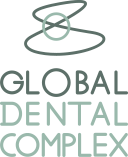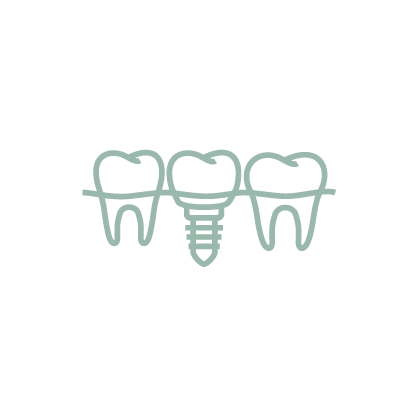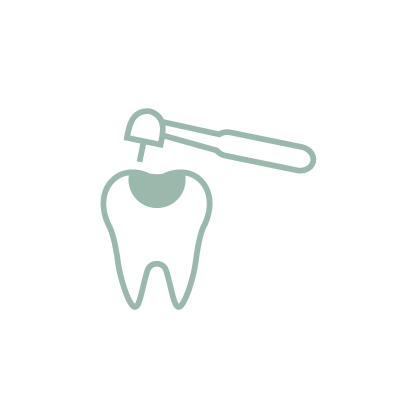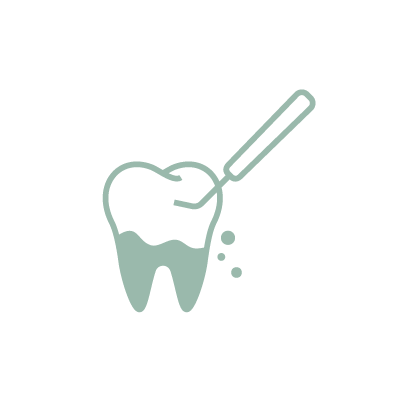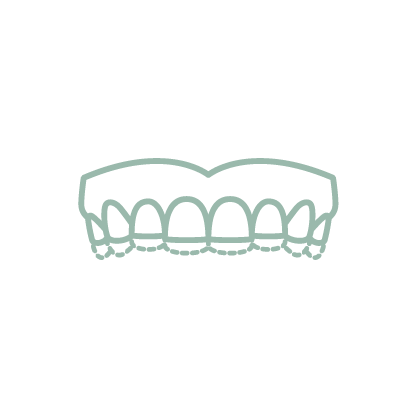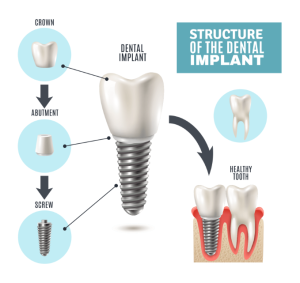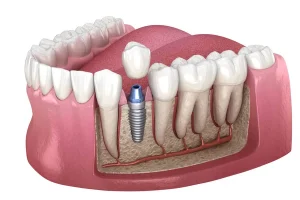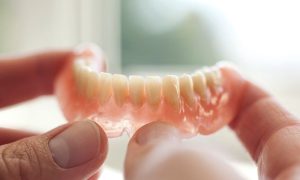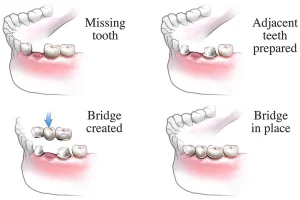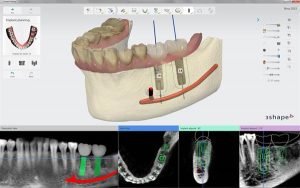What Are Dental Implants and Why Are They So Popular?
Dental implants are revolutionary dental treatments that use titanium screws placed into the jawbone to replace lost natural tooth roots. This innovative dental solution has transformed modern dentistry over the past decades, offering results that most closely resemble natural teeth in terms of function, appearance, and feel.
Today, dental implants have gained tremendous popularity worldwide because they restore the natural feeling of having real teeth. Patients experience improved strength, aesthetics, and functionality that other tooth replacement options simply cannot match. Research demonstrates that dental implants achieve success rates of 95-98% when performed by specialized dental professionals or dental implantologists.
The growing demand for dental implants stems from their ability to provide a permanent solution that doesn’t compromise adjacent healthy teeth, unlike traditional bridges, and offers superior stability compared to removable dentures.
Types of Dental Implants You Should Know About
Dental Implants by Location
Front tooth dental implants require exceptional precision due to their emphasis on both aesthetics and function. These implants must consider color matching, shape, and alignment with adjacent natural teeth. Anterior dental implants demand careful treatment planning to achieve natural and beautiful results that seamlessly blend with your smile.
Back tooth dental implants involve complexity in handling bite forces, as they must withstand 3-4 times more pressure than front teeth. The design of posterior dental implants focuses on strength and durability to handle the demanding chewing forces in the back of the mouth.
Dental Implants by Treatment Timeline
Traditional dental implants require 3-4 months of treatment time, divided into two main phases: implant placement and osseointegration (bone fusion), followed by final crown placement.
Same-day dental implants represent a specialized technique that Global Dental Complex has mastered. Patients can receive tooth extraction, implant placement, and temporary crown installation all in the same day. Same-day front tooth implants are particularly suitable for those seeking convenience without compromising quality, eliminating the need for removable temporary dentures.
Advantages of Dental Implants That Drive Their Popularity
Durability and Strength
Dental implants are crafted from medical-grade titanium with biocompatible properties, meaning they integrate well with the body without causing allergic reactions. Research shows that high-quality dental implants can last 25-30 years or even a lifetime with proper care and maintenance.
Natural Functionality
One of the most significant advantages of dental implants is their natural feel and function. Patients can chew food normally, speak clearly, and smile confidently. This differs dramatically from removable dentures, which may cause instability issues or unclear speech patterns.
Jawbone Health Preservation
Dental implants stimulate the jawbone through normal use, preventing bone loss that occurs after tooth loss. Research indicates that after losing a tooth, the jawbone begins to deteriorate within 3-6 months. Dental implants are the only tooth replacement method that effectively prevents this bone resorption.
Disadvantages and Limitations of Dental Implants
Higher Initial Investment
Dental implants have a higher upfront cost compared to alternatives like removable dentures or dental bridges. However, when considering long-term value, dental implants often prove more cost-effective due to their durability and minimal need for replacement or frequent repairs.
Extended Treatment Timeline
Traditional dental implant procedures require 3-4 months, which may not suit patients needing immediate results. However, innovative same-day implant techniques can significantly reduce this timeframe for qualified candidates.
Health-Related Limitations
Certain patients may not be suitable candidates for dental implants, including those with uncontrolled diabetes, heavy smokers, or individuals with insufficient jawbone density. Dental professionals must evaluate overall health conditions before treatment.
Detailed Dental Implant Procedure Steps
Step 1: Examination and Diagnosis
The initial consultation involves comprehensive oral health evaluation, X-rays, and CT scans to assess jawbone structure. Treatment planning considers multiple factors including bone density, nerve locations, and gum thickness.
Step 2: Site Preparation
If existing teeth require extraction, dentists use gentle extraction techniques to preserve maximum bone structure. Some cases may require bone grafting or sinus lifts to ensure adequate bone volume for implant placement.
Step 3: Dental Implant Placement
Implant placement occurs under local anesthesia. The dentist precisely drills into the jawbone using specialized instruments, then places the implant into the predetermined position. This step requires exceptional skill to ensure optimal implant positioning.
Step 4: Osseointegration Period
After implant placement, the osseointegration process begins, where the implant and jawbone fuse together securely. This healing period typically takes 3-4 months, depending on the patient’s overall health and bone quality.
Step 5: Crown Fabrication
Once the implant integrates with the bone, the dentist installs an abutment and creates a custom crown designed specifically for each patient. The crown receives precise color, shape, and size adjustments to match adjacent natural teeth.
Dental Implant Costs and Factors Affecting Pricing
Average Prices in 2025
Dental implant costs in Thailand vary based on material quality and dentist experience. On average, dental implants range from $1,200-$3,200 per tooth, including crown costs without additional procedures.
At Global Dental Complex, we offer comprehensive dental implant packages starting at $1,600 per tooth for high-quality dental implant with permanent crown. This pricing includes post-treatment care and close follow-up monitoring.
Factors Influencing Cost
Implant brand significantly affects pricing. Premium European and American brands like Astra Tech, Straumann, and Hiossen cost more than Asian alternatives but offer greater confidence in quality and long-term research backing.
Case complexity such as bone grafting requirements, sinus lifts, or pre-treatment gum disease therapy increases additional costs.
Dentist experience plays a crucial role, as specialized implant dentists with extensive experience typically charge higher fees but provide superior results and safety assurance.
Same-Day Dental Implants: Innovation for Modern Patients
What Makes This Technique Special
Same-day dental implants represent cutting-edge innovation addressing modern patients’ needs for speed without quality compromise. Global Dental Complex leads this technique with 95% success rates for front tooth cases.
Same-day implant procedures require meticulous planning and advanced technology, including 3D imaging for precise implant positioning and treatment planning.
Criteria for Same-Day Dental Implants
Not every case qualifies for same-day implants. Requirements include:
- Adequate jawbone thickness and density
- Absence of severe infection at extraction sites
- Good overall patient health
- Ability to strictly follow post-treatment instructions
Choosing the Right Dental Implant Brand
Leading Global Brands
Astra Tech from Sweden with a history of dental implant development over 40 years of continuous research. Astra Tech implants offer superior marginal bone preservation more than other systems.
Straumann from Switzerland represents another globally recognized brand featuring SLActive surface technology that accelerates implant-bone integration.
Hiossen from the United States excels in diverse design options and more accessible pricing compared to European brands.
Budget-Conscious Brand Selection
For limited budgets, South Korean brands like Osstem and NeoBiotech provide excellent alternatives. These offer international quality standards at more affordable prices, with FDA approval and widespread global usage.
Long-Term Dental Implant Care
Initial Care Period
Post-implant care during the first two weeks is crucial. Patients should avoid hard foods, maintain surgical site cleanliness, and take prescribed medications as directed.
Long-Term Maintenance
Once fully integrated, dental implant care resembles natural tooth care. Regular brushing, flossing, and scheduled dental visits are essential. Proper maintenance helps implants function optimally for decades.
Warning Signs to Monitor
Patients should watch for potential problems including gum swelling, bleeding, unusual mouth odors, or discomfort around the implant site. Immediate dental consultation is necessary if these symptoms appear.
Comparing Dental Implants with Alternative Treatments
Dental Implants vs. Removable Dentures
Removable dentures offer lower initial costs and avoid surgery but present convenience limitations. They may slip during speaking or eating and require special cleaning maintenance. Some patients cannot wear dentures due to instability and sore spots. Dental implants provide more natural functionality without removal requirements.
Dental Implants vs. Dental Bridges
Dental bridges require grinding adjacent healthy teeth for support anchors, essentially damaging good teeth. Implants don’t affect neighboring natural teeth and offer easier cleaning access. Additionally, bridges last approximately 5-10 years while implants can function for decades.
Advanced Technology in Modern Dental Implants
3D Technology Applications
3D planning technology enables precise treatment planning by simulating implant positions in computer models before actual surgery. This reduces risks and increases treatment accuracy significantly.
Guided Surgery Innovation
Guided surgery techniques use 3D data-created templates to navigate surgical procedures. This results in highly accurate implant placement, reduced surgery time, and decreased patient pain with faster recovery.
Safety and Side Effects of Dental Implants
Success Rates
Long-term research demonstrates exceptionally high dental implant success rates, particularly with specialist dentists. 10-year success rates reach approximately 95% for lower jaw implants and 90% for upper jaw implants.
Potential Complications
Despite high safety standards, some complications may occur, including surgical site infections, implant-bone integration failure, or nerve damage. Choosing experienced specialists significantly reduces these risks.
Who Should Consider Dental Implants?
Ideal Candidates
Dental implants suit patients who have lost one or multiple teeth and desire the most natural tooth replacement option. Particularly suitable for those who:
- Want convenient functionality
- Prefer avoiding removable dentures
- Have adequate jawbone or can undergo bone grafting
- Maintain good overall health without severe medical conditions
Candidates Requiring Careful Consideration
Certain patients should consult dental professionals thoroughly before deciding, including those with diabetes, smokers, heart disease patients, or individuals taking medications affecting bone healing.
Preparing for Dental Implant Treatment
Initial Health Evaluation
Before dental implant treatment, patients should undergo comprehensive health examinations, including blood tests to check sugar levels and blood clotting capabilities. These evaluations help dentists assess risks and plan appropriate treatments.
Mental Preparation
Dental implant treatment requires time and patience. Patients should prepare mentally for potentially months-long treatment processes and maintain strict adherence to professional recommendations.
Post-Treatment Care Guidelines
First Week After Surgery
This critical period requires avoiding hard and extremely hot foods, consuming only liquid or soft foods, avoiding vigorous mouth rinsing, and sleeping with elevated head positioning to reduce swelling.
First to Second Month
After initial healing, patients can gradually expand their diet while remaining cautious about direct pressure on the implant site. Excessive force may cause implant movement and integration failure.
Future Trends in Dental Implant Technology
Digital Dentistry Revolution
The future of dental implants is rapidly advancing into full digital dentistry. Integration of intraoral scanners, CAD/CAM technology, and 3D printing will increase treatment precision while reducing treatment time.
New Material Development
Researchers are developing innovative materials for dental implants, including zirconia implants with natural white coloring and metal-free composition, plus new surface treatments that accelerate bone integration.
Frequently Asked Questions About Dental Implants
Do dental implants hurt? Implant placement occurs under local anesthesia, so patients feel no pain during surgery. Post-surgical discomfort is typically mild and manageable with standard pain medications.
How long do dental implants last? High-quality dental implants with proper care can last 25-30 years or potentially a lifetime. Long-term studies show implants placed over 20 years ago continue functioning well in most patients.
Who shouldn’t get dental implants? Patients with uncontrolled diabetes, heavy smokers, those with osteoporosis, or individuals receiving head and neck radiation therapy should consult thoroughly with dental professionals to evaluate risks and benefits.
Why Choose Global Dental Complex
Expert Dental Team
Global Dental Complex features dental implant specialist with over 20 years of experience, certified by leading dental institutions both domestically and internationally, ensuring treatment quality confidence.
Advanced Technology
We utilize cutting-edge 3D imaging, digital planning, and guided surgery technology for maximum treatment precision and reduced surgical risks.
Comprehensive After-Care Service
Our close treatment follow-up system includes dental implant warranties and repair services for potential issues, giving patients confidence in their treatment investment.
Financial Planning for Dental Implants
Payment Plan Options
Understanding that dental implant costs may burden many families, Global Dental Complex in some occasions offers flexible payment plans.
Insurance Coverage Options
Some cases may qualify for social security coverage. Patients should inquire about specific conditions and procedures for benefit utilization.
Conclusion: Investing in Your Quality of Life
Dental implants represent more than dental treatment – they’re an investment in long-term quality of life. Having strong, beautiful teeth impacts confidence, work performance, and personal relationships. While initial costs may be substantial, long-term calculations show dental implants provide superior value compared to alternative treatments.
For those considering dental implants, selecting experienced clinics and dentists remains the most crucial factor. Global Dental Complex offers comprehensive dental implant consultations and services using advanced technology and specialist teams.
For dental implant inquiries or anterior dental implant consultations, contact Global Dental Complex at 065-669-9191 or 02-591-9191 to schedule your free specialist consultation. Learn more about our same-day full mouth implant solutions and discover how we can restore your confident smile.
